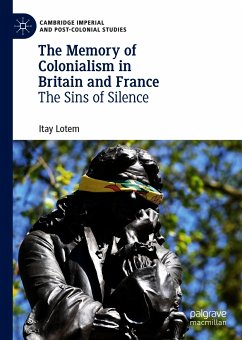Dieser Download kann aus rechtlichen Gründen nur mit Rechnungsadresse in A, B, BG, CY, CZ, D, DK, EW, E, FIN, F, GR, HR, H, IRL, I, LT, L, LR, M, NL, PL, P, R, S, SLO, SK ausgeliefert werden.
"The book is engagingly written, and is notable in its ambition, scope, and breadth of research undertaken. ... The Memory of Colonialism makes several important and timely interventions in the study of historical remembrance and postcolonial identity. ... His book will surely become a cornerstone of the growing scholarship on colonial memory, and deserves to be widely read." (M. Kathryn Edwards, Social History, April 7, 2022)









